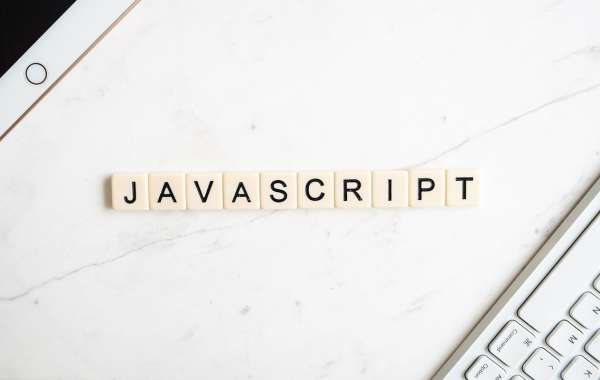In Java programming, constructors play a fundamental role in initializing objects. They are particular methods that are invoked when an object is instantiated, allowing developers to set initial values and perform necessary setup tasks. Constructors are essential for creating robust and efficient Java programs, as they ensure objects are correctly initialized before use.
Exception handling is another critical aspect of Java programming. It aims to manage errors and unexpected conditions that may arise during program execution. Effective exception handling in constructors ensures that objects are constructed safely and predictably, enhancing the reliability and stability of Java applications.
Understanding Constructors in Java
Constructors in Java are particular methods that have the same name as the class they belong to and are used to initialize objects. Their primary purpose is to set initial values for object attributes and perform any required initialization tasks when an object is created. There are several types of constructors:
Default Constructor: This constructor is automatically created by Java if no other constructors are defined explicitly. It initializes object variables to their default values.
// Example of a default constructor
public class Car {
// Default constructor
public Car() {
// Initialization code
}
}
Parameterized Constructor: Accepts parameters that are used to initialize object attributes with specified values. It allows for customization of object initialization based on provided arguments.
// Example of a parameterized constructor
public class Person {
private String name;
private int age;
// Parameterized constructor
public Person(String name, int age) {
this.name = name;
this.age = age;
}
}
Overloaded Constructors: Multiple constructors within the same class with different parameter lists. Overloaded constructors provide flexibility in object initialization by accommodating different combinations of parameters.
java
Copy code
// Example of overloaded constructors
public class Book {
private String title;
private String author;
// Constructor with different parameter lists
public Book(String title) {
this.title = title;
}
public Book(String title, String author) {
this.title = title;
this.author = author;
}
}
Understanding these constructor types is crucial for designing efficient and flexible Java classes that meet specific programming requirements.
Exception Handling Basics in Java
Exception handling in Java is a powerful mechanism for managing runtime errors and ensuring the smooth execution of programs. Exceptions are events that disrupt the normal flow of execution and can occur due to various reasons such as invalid user input, hardware failures, or resource limitations. Java provides a structured way to handle these exceptions using the try-catch-finally construct.
Try Block: Encloses the code that might throw an exception. If an exception occurs within the try block, it is caught and handled by the corresponding catch block.
java
Copy code
try {
// Code that may throw an exception
} catch (ExceptionType e) {
// Code to handle the exception
} finally {
// Code that executes regardless of an exception
}
Catch Block: Catches and handles the specific type of exception thrown by the try block. Multiple catch blocks can be used to handle different types of exceptions.
java
Copy code
try {
// Code that may throw an exception
} catch (IOException e) {
// Handle IO exception
} catch (NumberFormatException e) {
// Handle number format exception
}
Finally Block: Contains code that executes regardless of whether an exception was thrown or caught. It is typically used for cleanup activities like closing files or releasing resources.
java
Copy code
try {
// Code that may throw an exception
} catch (Exception e) {
// Handle exception
} finally {
// Cleanup code
}
Effective exception handling ensures that programs can deal with unexpected events gracefully, improving the robustness and reliability of Java applications.
Handling Exceptions in Constructors
Handling exceptions in constructors is crucial because it ensures that objects are properly initialized even when errors occur. Here are some best practices for managing exceptions within constructors:
Using Try-Catch Blocks: Encapsulate code that might throw exceptions within try-catch blocks to handle errors during object initialization.
java
Copy code
public class DatabaseConnection {
private Connection connection;
public DatabaseConnection(String url) {
try {
this.connection = DriverManager.getConnection(url);
} catch (SQLException e) {
System.out.println("Error: Unable to establish a database connection.");
e.printStackTrace();
}
}
}
Throwing Exceptions: If a constructor encounters an error that it cannot handle, it can throw an exception to be managed by the calling code. This approach is useful when object creation depends on external factors, like file access or network connectivity.
java
Copy code
public class FileReader {
private BufferedReader reader;
public FileReader(String filePath) throws FileNotFoundException {
this.reader = new BufferedReader(new java.io.FileReader(filePath));
}
}
public class FileProcessor {
public static void main(String[] args) {
try {
FileReader fileReader = new FileReader("data.txt");
} catch (FileNotFoundException e) {
System.out.println("File not found: " + e.getMessage());
}
}
}
Custom Exceptions: Define custom exceptions for specific error conditions to provide more meaningful error messages and improve code readability.
java
Copy code
public class InvalidAgeException extends Exception {
public InvalidAgeException(String message) {
super(message);
}
}
public class Person {
private int age;
public Person(int age) throws InvalidAgeException {
if (age < 0) {
throw new InvalidAgeException("Age cannot be negative.");
}
this.age = age;
}
}
public class Test {
public static void main(String[] args) {
try {
Person person = new Person(-1);
} catch (InvalidAgeException e) {
System.out.println("Exception: " + e.getMessage());
}
}
}
By following these practices, developers can ensure that their constructors handle exceptions effectively, leading to more robust and error-resistant Java applications.
Example: Implementing Constructors with Exception Handling
Let's explore a practical example of implementing constructors with effective exception handling. Suppose we are building a class Account that represents a bank account. The constructor will initialize the account's balance, but it must handle situations where an invalid initial balance is provided.
java
Copy code
public class InvalidBalanceException extends Exception {
public InvalidBalanceException(String message) {
super(message);
}
}
public class Account {
private double balance;
public Account(double initialBalance) throws InvalidBalanceException {
if (initialBalance < 0) {
throw new InvalidBalanceException("Initial balance cannot be negative.");
}
this.balance = initialBalance;
}
public double getBalance() {
return balance;
}
public static void main(String[] args) {
try {
Account account = new Account(-100);
} catch (InvalidBalanceException e) {
System.out.println("Failed to create account: " + e.getMessage());
}
}
}
In this example, we define a custom exception InvalidBalanceException to handle cases where an invalid initial balance is provided. The Account constructor checks the validity of the initial balance and throws the custom exception if the balance is negative. In the main method, we attempt to create an account with a negative balance, and the exception is caught and handled appropriately.
This approach ensures that the Account objects are always initialized with valid data, enhancing the robustness and reliability of the application.
Common Pitfalls and Best Practices
When handling exceptions in constructors, it's important to be aware of common pitfalls and follow best practices to avoid potential issues:
Common Pitfalls:
Swallowing Exceptions: Avoid catching exceptions in constructors without taking appropriate action or rethrowing them. Swallowing exceptions can lead to objects being partially initialized and hard-to-debug issues.
java
Copy code
public class User {
private String name;
public User(String name) {
try {
if (name == null) {
throw new IllegalArgumentException("Name cannot be null.");
}
this.name = name;
} catch (IllegalArgumentException e) {
// Incorrect: Swallowing the exception without action
}
}
}
Throwing Generic Exceptions: Avoid throwing generic exceptions like Exception or RuntimeException from constructors. Use specific exception types to provide meaningful error messages and improve code clarity.
java
Copy code
public class Product {
private double price;
public Product(double price) throws Exception {
if (price < 0) {
throw new Exception("Price cannot be negative.");
}
this.price = price;
}
}
Best Practices:
Use Specific Exceptions: Define and use specific exceptions to handle different error conditions. This improves code readability and provides more precise error handling.
java
Copy code
public class InsufficientFundsException extends Exception {
public InsufficientFundsException(String message) {
super(message);
}
}
Validate Inputs Early: Perform input validation at the start of the constructor to catch and handle errors early. This ensures that the rest of the constructor code runs with valid data.
java
Copy code
public class Employee {
private int age;
public Employee(int age) throws IllegalArgumentException {
if (age < 0) {
- throw new IllegalArgumentException




